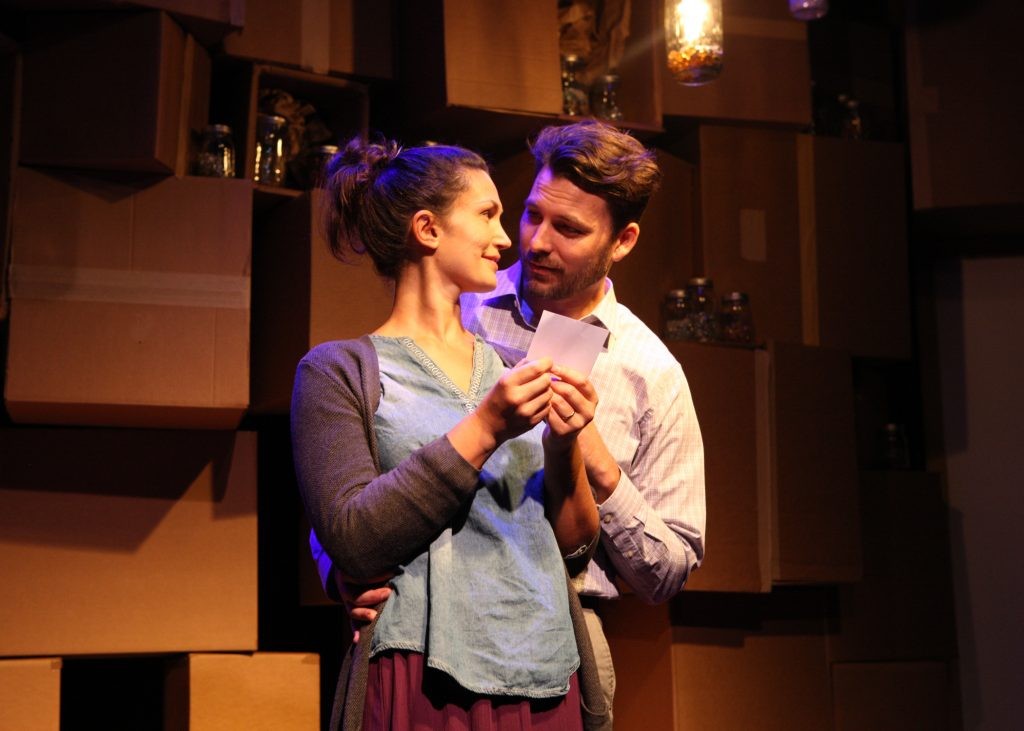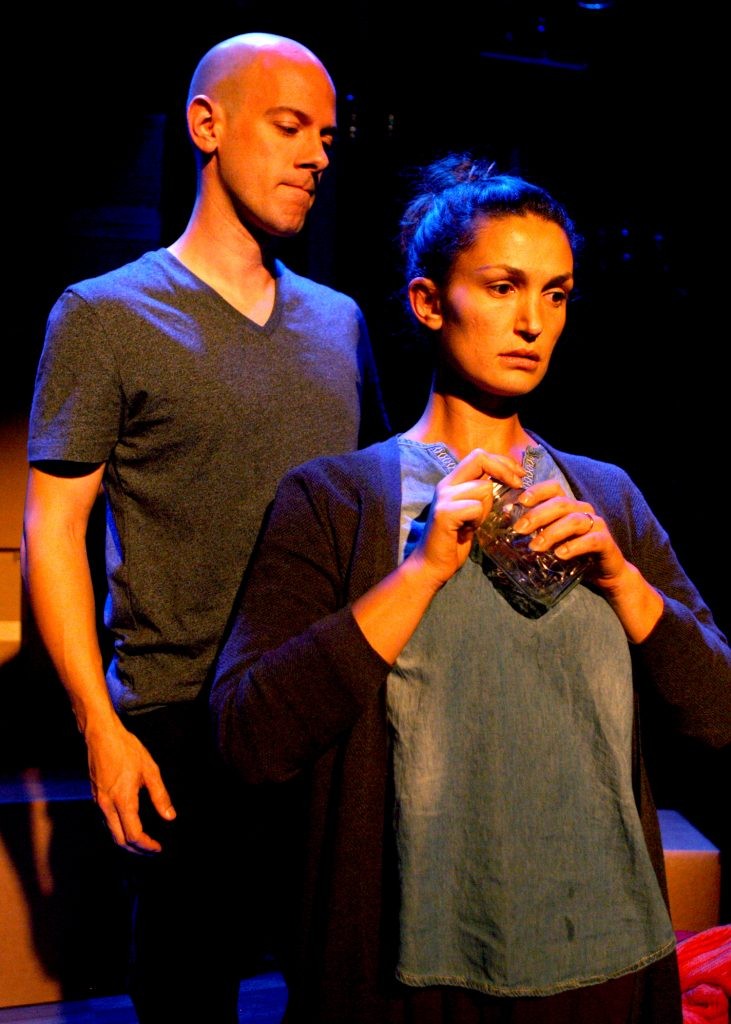 Somewhere along the way, with so many musicals concerned with bombastic spectacle and important shit that matters, and so many straight (i.e., non-musical, plays) seemingly more concerned with issues of diversity, gender, race and inclusivity, one aspect that kind of made theater theater in the first place has been muted.
Somewhere along the way, with so many musicals concerned with bombastic spectacle and important shit that matters, and so many straight (i.e., non-musical, plays) seemingly more concerned with issues of diversity, gender, race and inclusivity, one aspect that kind of made theater theater in the first place has been muted.
Its voice.
No, not the voice of identity or social relevance. Those concerns are obviously urgently important. Lord knows, we need more playwrights with different views than the mostly white, mostly male ones that have so long dominated the American stage. I’m talking about the words. Not words within the context of plot or character or even, really, the dialogue. But the way words sound, their auditory dimension, their poetics, the spaces between, their ability to both communicate eloquently and, strangely, often serve as a barrier to conventional communication, and the underlying human drive beneath each. The thing Beckett and the so-called absurdists experimented with, what Caryl Churchill has done for nearly 50 years, what made Shakespeare (along with the dick jokes) Shakespeare.
Whatever the reason, it’s always gratifying (for those of us who don’t quantify economic success with artistic success, i.e., losers), to stumble across a young and emerging playwright who realizes the potency of language. Not its muscle, the shouting and declaring and challenging and cleverness and wit and irony and finger-pointing. But its connective tissue, its tendons and ligaments, and circulatory system, its veins and capillaries that make us human on a level less obvious or conscious.
Based on her play In a Word, receiving its Southern California premiere at The Chance Theater, you can add Lauren Yee to the apparently ebbing tide of playwrights who understand that language can be its own thing. Yee, a San Francisco native and Yale Drama School product, isn’t exactly unknown outside of these cultural hinterlands. She’s blipped on the radar of Big Regional Theater since at least 2009, and has been either produced around the country, including such not-so-irrelevant places as the Chicago’s Goodman Theatre, which produced her play King of the Yees this year, and the Center Theatre Group (that’s in LA), or workshopped and developed all over the place.
 The Chance, which has long exhibited an interest in not only producing new plays, but cultivating writers, named Yee its resident playwright in 2015, which is when she began working on In a Word. Two years later, they’ve given her a slot on its second stage and, while if anything but a be-happy don’t-worry play, this Jocelyn A. Brown-directed production is illustrative that playwrights don’t have to necessarily conform to whatever dominant tropes currently dominate, but can, instead, explore the nuances, rhythms and unfathomable complexities—and impenetrable chasms—of words themselves.
The Chance, which has long exhibited an interest in not only producing new plays, but cultivating writers, named Yee its resident playwright in 2015, which is when she began working on In a Word. Two years later, they’ve given her a slot on its second stage and, while if anything but a be-happy don’t-worry play, this Jocelyn A. Brown-directed production is illustrative that playwrights don’t have to necessarily conform to whatever dominant tropes currently dominate, but can, instead, explore the nuances, rhythms and unfathomable complexities—and impenetrable chasms—of words themselves.
A couple’s child has disappeared. And has been gone for two years. Cue the TV networks and the blamers and sobbers. But Yee’s play, while obviously about the devastating emotional toll that such a disappearance levies on the parents, is also about how words can both illuminate, and obfuscate, that emotional tariff. It’s not a perfect play. While it is heartening, cynically, to watch a play unspool that counters the totem of parents crushed and reeling by child disappearance by positing the notion that, just maybe, those parents mighta kinda aren’t that bothered, or at least must consider that they may have, weirdly, willed, or at least subconsciously not-of-minded so much, this into being, it’s not always clear just what Yee wants to accomplish with her syntaxial (is that even a word?) gymnastics. For instance, what purpose does the repetitive device of confusing the words leaf and leave really mean, besides, obviously, making the audience stop and ponder it. Which might have answered the question.
But you also can’t shake the feeling that this is a play that is tweaking the use of words in order to tweak the nature of subjectivity, and human communication, itself. It’s what isn’t said that matters in this play. It may not make Yee’s play the most audience-friendly (even with Brown’s taut, emotionally complex direction and bravura performances courtesy of James McHale, Chance Dean and Amanda Zarr). But it is a play that sticks with you long after the lights have faded. Not to the ribs. But to the heart. And it lodges there more because of what isn’t said as much as what is said.
In a Word at Chance Theater, 5522 E. La Palma Ave., Anaheim Hills, (888) 445-4212. Fri.-Sat., 7:45 p.m.; Sun., 2:45 p.m. Thru Oct. 8. $21-$35. www.chancetheater.com.
Joel Beers has written about theater and other stuff for this infernal rag since its very first issue in, when was that again???

